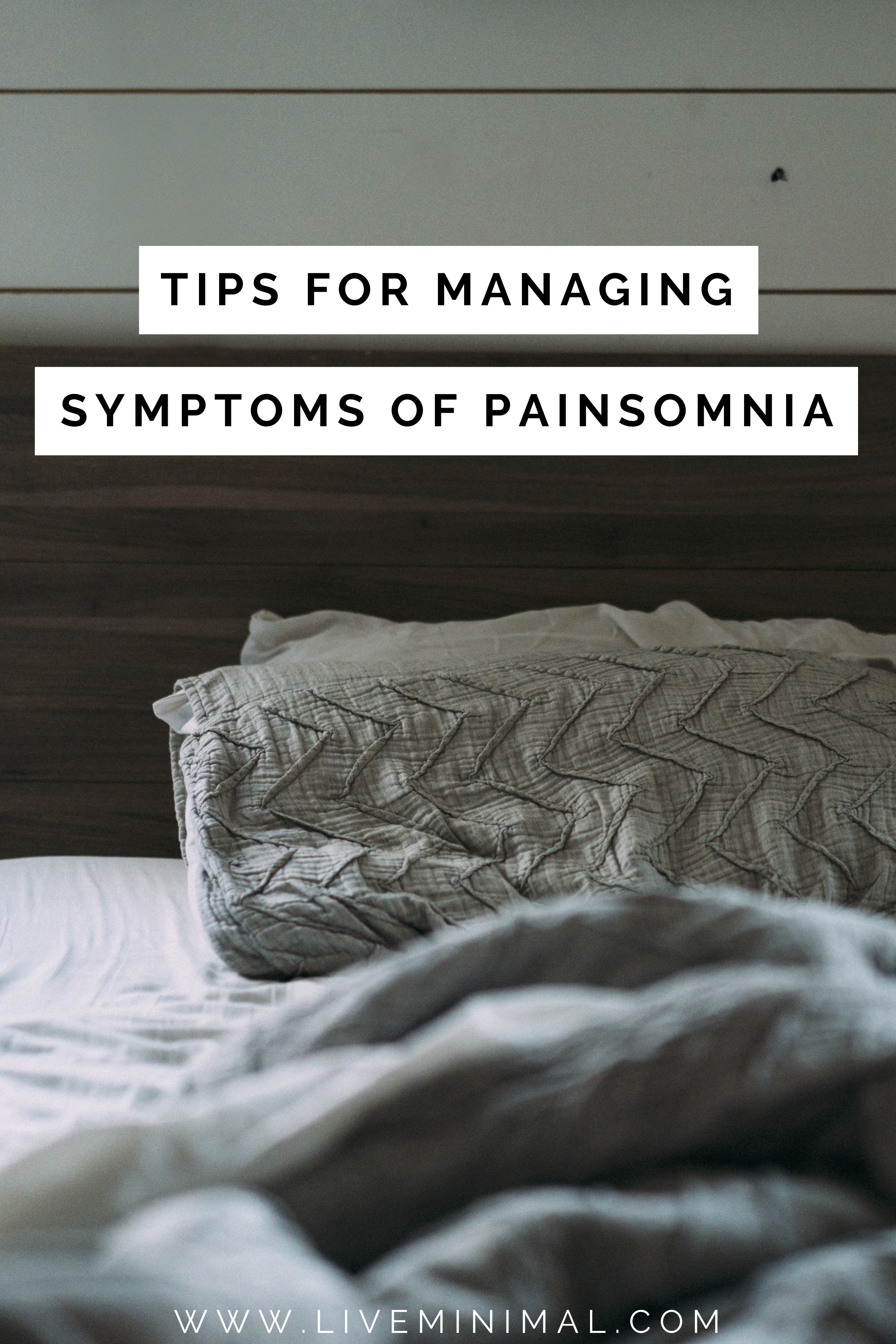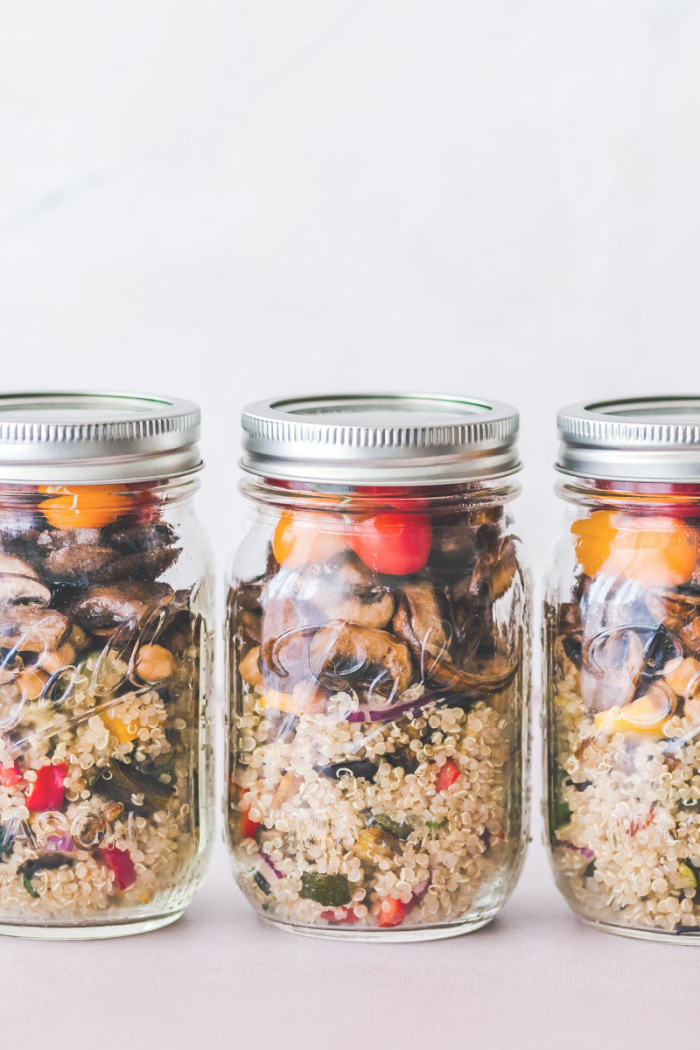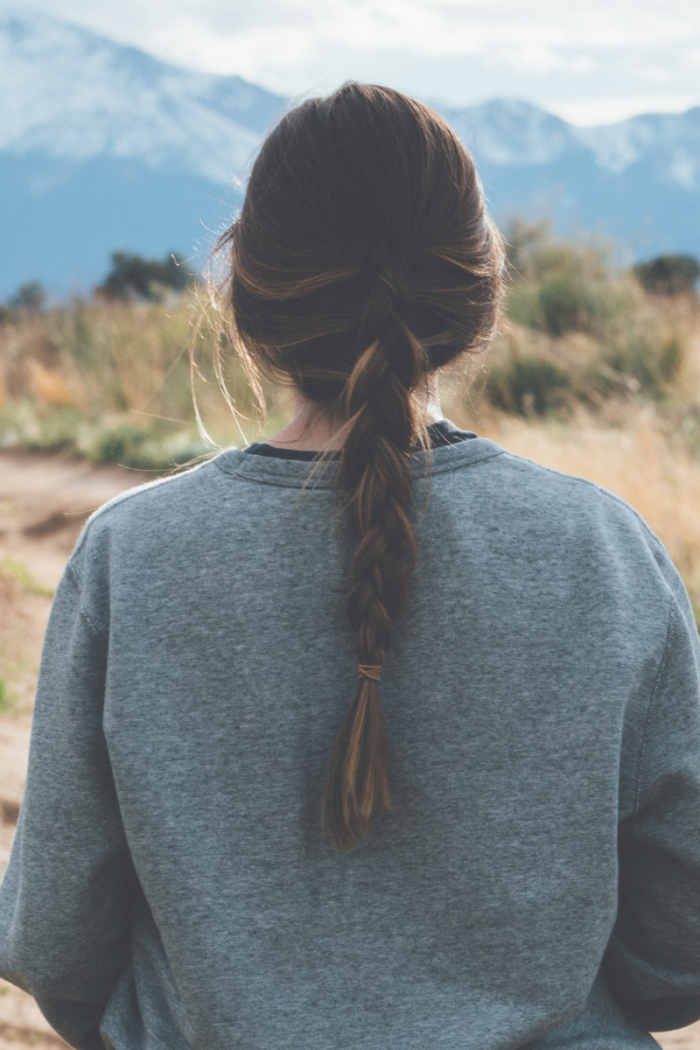Painsomnia is an inability to sleep (insomnia) due to chronic pain. And when cyclical, can exacerbate symptoms of chronic illness. When dealing with an entire night of pain, I feel exhausted and my heart tends to work harder the next day, triggering more of my dysautonomia symptoms.
Most nights I sleep on the couch because I have difficulties finding a position in bed where I can breathe, my legs don’t cramp, or where my body doesn’t throb or lose circulation. Even still, getting to sleep can take several hours.
Exactly like insomnia, painsomnia leaves you ruminating on past events, and worries of the future. You constantly check your phone to see how much time has passed and how much time you have left before you need to get up. It’s one thought after another. Despite your body being exhausted, your mind is racing and you’re in too much pain to sleep.
When you finally fall asleep, it doesn’t last long and pain wakes you up every few hours.
I’m not a big fan of taking pain killers due to my heart condition and gastrointestinal issues. However, if the pain passes the threshold and reaches a 9/10, I’ll grab one.
Here are a few tips for managing symptoms of painsonmnia that work for me –
- Exercise during the day.
This helps with the leg stiffness and cramping. Dysautonomia and thyroid issues can make it difficult to exercise for an extended amount of time, so try to spend 5 minutes on a recumbent bike, a few minutes doing weights (1kg each barbell) or take a short 3-minute walk around the block. Moving your body will increase blood flow, sending oxygen and nutrient-rich blood to your tissues. - Shower before bed.
Showering is draining – especially on days you need to wash your hair! A warm shower before bed will help increase blood circulation, ease pain and reduce levels of inflammation. Just be sure not to spend too long in the shower. If you deal with dysautonomia the excessive heat and standing can set off symptoms (tachycardia) and cause you to remain awake until they subside. - Magnesium.
Magnesium is a fundamental mineral for health. It has been proven to calm the nervous system and contribute to deep and restful sleep. You may have to speak with your doctor about which type of magnesium is best for you, but I take a single magnesium citrate tablet before bed. - Apply heat.
I’m not certain why, but my leg pain seems to originate in my ankles and radiates up. To combat the pain, I lay a heat pack across my ankles or shins – even on 30°C (86°F) nights! It might be scorching weather outside, but my feet feel like ice. If you have Raynaud’s, the pain associated with cold feet can be intense. Applying heat to inflamed areas dilates blood vessels, improves blood flow, and helps sore and stiffened muscles relax. - Sleep with extra cushioning.
Bodies with chronic illness need extra support. It might sound a bit like the princess and the pea story but I can feel everything underneath me when I go to bed. I fold three quilts in half and place them on top of the mattress to sleep on. After this pillows are placed around for extra cushioning and an extra one under my head for elevation. - Listen to white noise.
White noise is a different sound used to mask background noises. These sounds promote healthy sleep and block out sounds that prevent you from falling asleep or waking up whilst asleep. A few examples are ocean waves or rain. I have white noise playing on a very low volume from across the room. Keep the volume low so that it does not aggravate any hypersensitivity issues. Focussing on the sounds helps distract me from the pain. When choosing your white noise, select the tracks carefully – I’ve played tracks with rainforest sounds only to be woken up many times by high pitched birds! Here is the link to one that I listen to at night. - Prepare a distraction.
If all else fails, find a distraction. Focussing on the pain only heightens restlessness. What makes painsomnia worse, is knowing your schedule for the next day has gone out the window. It’s incredibly hard to have the energy to be productive the next day when you’ve spent the entire night dealing with painsomnia. Rather than focusing on the pain, leave a journal or colouring book nearby. Kindle’s are great for late night reading – you can keep the contrast low and they are easier to handle than heavy books. Try to avoid computers or phone screens.
Painsomnia can be debilitating and exhausting but hopefully you find these tips helpful.
Do you experience painsomnia and have any tips? I’d love to hear them below!



